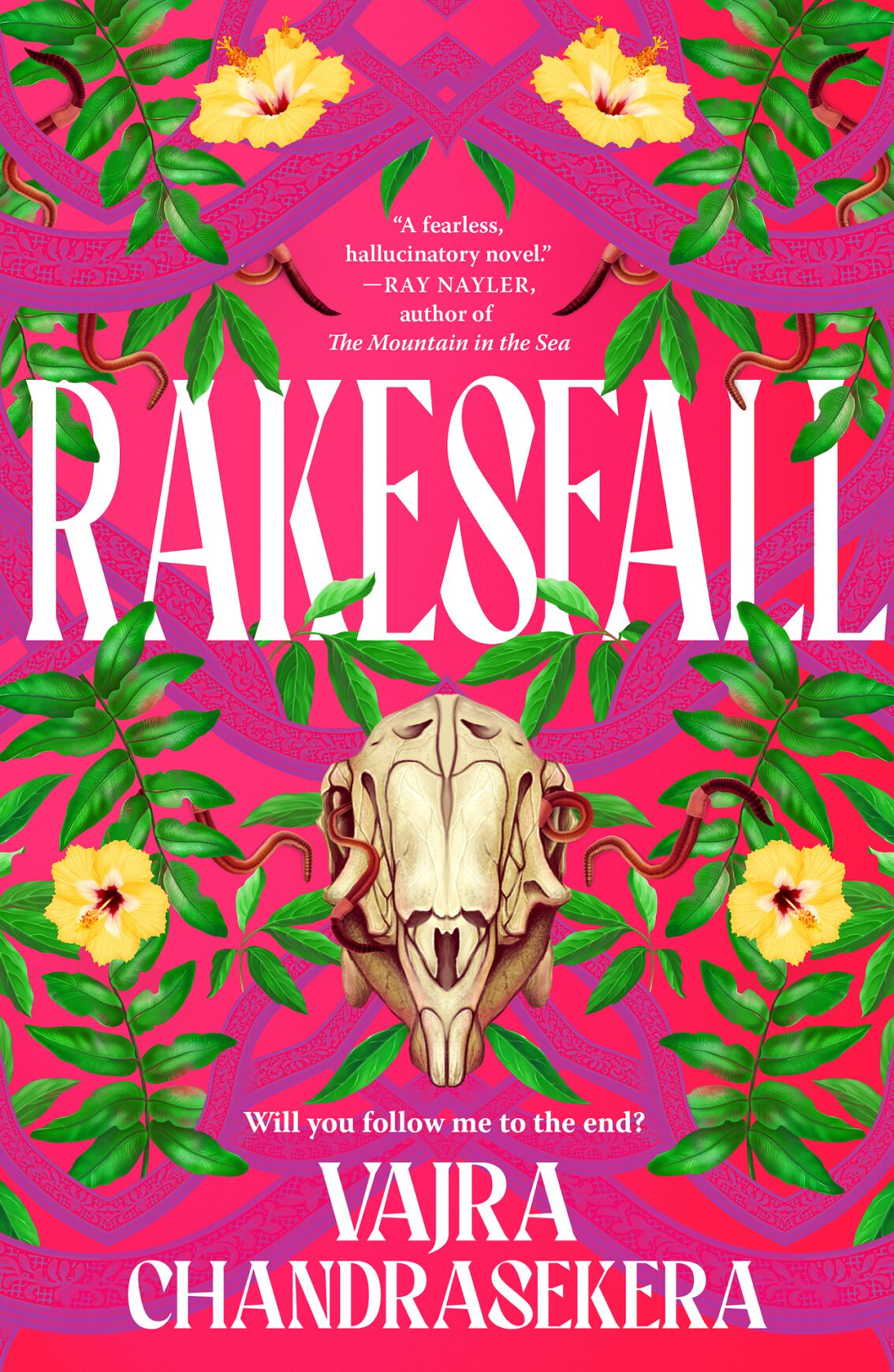- The Good: Ambitious Buddhist scifi with large scale worldbuilding
- The Bad: Complex, confusing; lack of plot
- The Literary: Surreal prose; rich mythology
Annelid and Leveret have met before, in a post-war Sri Lanka, in a demon-haunted wood, and on a post-human Earth. Their souls meet again and again in different forms, reincarnated through space and time, their friendship evolving and growing, sometimes merging.
It’s impossible distill Rakesfall into a plot synopsis. This ambitious and disparate collection of uniquely formatted stories is so postmodern, I’m not sure how to classify it. It’s weird and confusing and poetic and sprawling—a stream-of-consciousness, if that consciousness belonged to someone with dementia, only remembering snippets of their life, unsure if their memories are theirs or someone else’s.
Several little stories catch my imagination in here, including the opening story, in which we the readers are watching a TV show about two children who are brought together because both lost a parent in the Sri Lankan Civil War. As children, they daydream about fleeing the country and getting married. As they grow up and part, Leveret decides to join the armed forces on one side of the war. In a surprising twist, Annelid smashes a rock into the back of Leveret’s skull and flees into the forest, at which point the show is cancelled. After this, new characters emerge, although it’s likely they’re the still the same characters, plus there’s witches, ghosts, an in-story play concerning the Portuguese, demons, the Akashic Records, cyborgs, and gods.
There are also great themes here, especially about the endless cycle of corrupt powers forming political divides, violence and nationalism, those who resist, those who remain pacifists, and those who survive. Those in power often distort religion and use it in their favor, and incarnations of the Buddha and Siddhartha change throughout the generations as those in control do. Not to mention that complex personal relationships can be both difficult and satisfying.
But as ambitious and promising as it is, the book doesn’t work as a whole. The stories lack cohesion, and many are so dense I can’t figure out what I’m reading. Postmodernism and nontraditional plots are great, but they still have to make some kind of sense. If you pick up this Nebula and Locus-nominee, be prepared.
I’ve read and reviewed Chandrasekera’s debut novel The Saint of Bright Doors, which is also ambitious but more accessible than this one. Check it out first if you are new to Chandrasekera’s work.
